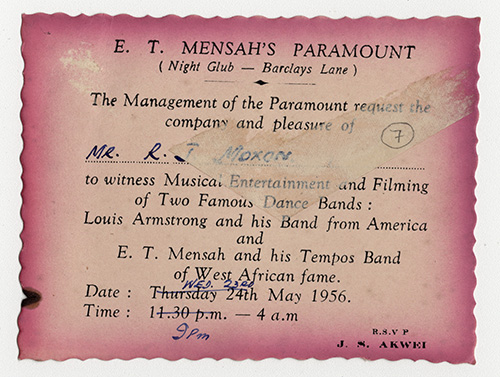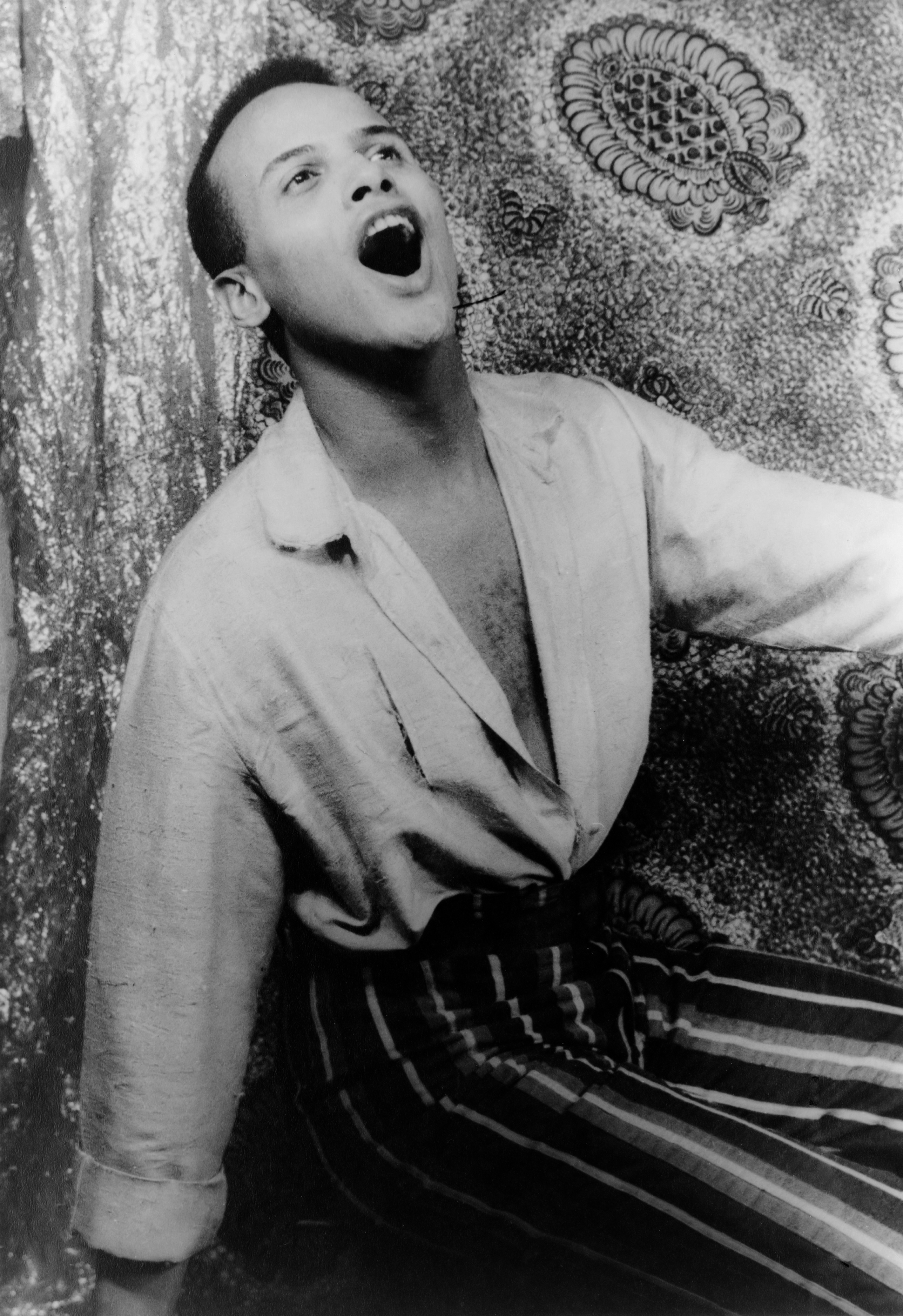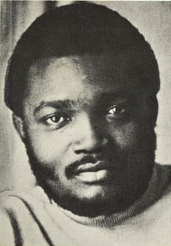|
Sweet Mother
"Sweet Mother" is a highlife song by the Cameroonian and Nigerian singer Prince Nico Mbarga and his band Rocafil Jazz. Released in 1976, it remains one of the most popular songs in Africa. The demo-tape of "Sweet Mother" was turned down by EMI in 1974, citing the song's "childish appeal." "Sweet Mother" was later also rejected by Decca Records and Philips Records, before it was eventually released in December, 1976, by Rogers All Stars, a Nigerian recording company based in Onitsha. The song is a celebration of motherhood, sung in Nigerian Pidgin English. The music is West African highlife, with Congolese Soukous-style guitar finger-picking. "Sweet Mother" went on to become one of the most popular hits in Africa, selling over 13 million copies. Sometimes called ''Africa's anthem'', it was voted Africa's favourite song by BBC readers and listeners in 2004, coming before Brenda Fassie's "Vuli Ndlela", Fela Kuti's "Lady", Franco's "Mario" and Miriam Makeba's version of "Mal ... [...More Info...] [...Related Items...] OR: [Wikipedia] [Google] [Baidu] |
Highlife
Highlife is a music genre that started in present-day Ghana in the 19th century, during its Gold Coast (British colony), history as a colony of the British Empire and through its trade routes in coastal areas. It describes multiple local fusions of African metre and western jazz melodies. It uses the melodic and main rhythmic structures of traditional Akan people, Akan music, Kpanlogo Music of the Ga people, but is typically played with Western instruments. Highlife is characterized by jazzy Horn section, horns and multiple guitars which lead the band and its use of the two-finger plucking Guitar picking, guitar style that is typical of African music. Recently it has acquired an uptempo, synth-driven sound. Highlife gained popularity in the genre "Native Blues" prior to World War II before production was shut down. After the war its popularity came back within the Igbo people of Nigeria, taking their own traditional guitar riffs and the influence of the Ghanaian highlife performi ... [...More Info...] [...Related Items...] OR: [Wikipedia] [Google] [Baidu] |
Fingerstyle Guitar
Fingerstyle guitar is the technique of playing the guitar or bass guitar by plucking the strings directly with the fingertips, fingernails, or picks attached to fingers, as opposed to flatpicking (plucking individual notes with a single plectrum, commonly called a "pick"). The term "fingerstyle" is something of a misnomer, since it is present in several different genres and styles of music—but mostly, because it involves a completely different technique, not just a "style" of playing, especially for the guitarist's picking/plucking hand. The term is often used synonymously with fingerpicking except in classical guitar circles, although fingerpicking can also refer to a specific tradition of folk, blues and country guitar playing in the US. The terms "fingerstyle" and "fingerpicking" also applied to similar string instruments such as the banjo. Music arranged for fingerstyle playing can include chords, arpeggios (the notes of a chord played one after the other, as opposed to ... [...More Info...] [...Related Items...] OR: [Wikipedia] [Google] [Baidu] |
Cameroonian Music
The music of the Cameroon includes diverse traditional and modern musical genres. The best-known contemporary genre is makossa, a popular style that has gained fans across Africa, and its related dance craze bikutsi. The pirogue sailors of Douala are known for a kind of singing called ngoso which has evolved into a kind of modern music accompanied by zanza, balafon, and various percussion instruments. Traditional music The ethnicities of Cameroon include an estimated 250 distinct ethnic groups in five regional-cultural divisions. An estimated 38% of the population are Western highlanders–Semi-Bantu or grassfielders including the Bamileke, Bamum, and many smaller Tikar groups in the northwest. 12% are coastal tropical forest peoples, including the Bassa, Duala, and many smaller groups in the southwest. The southern tropical forest peoples (18%) include the Beti-Pahuin and their sub-groups the Bulu and Fang, the Maka and Njem, as well as, the Baka pygmies. In the semi-a ... [...More Info...] [...Related Items...] OR: [Wikipedia] [Google] [Baidu] |
Malaika
Malaika is a Swahili song written by Tanzanian musician Adam Salim in 1945. This song is possibly the most famous of all Swahili love songs in Tanzania, Kenya and the entire East Africa, as well as being one of the most widely known of all Swahili songs in the world. ''Malaika'' in this context means "angel" in Swahili, and this word has always been used by the Swahili speakers to refer to a beautiful girl. The lyrics of the song differ slightly from version to version; the title itself is subject to variation, such as "Ewe Malaika" (Oh, Angel) or "My Angel". Authorship and covers Authorship of this popular song is still very controversial. However, most people accredit its authorship to Adam Salim, a not-well-published Tanzanian songwriter. Salim (born in 1916) composed this song while he was living in Nairobi between 1945 and 1946. According to this story, Adam Salim composed "Malaika" song in 1945 for his very beautiful girlfriend Halima Ramadhani Maruwa. Their parents di ... [...More Info...] [...Related Items...] OR: [Wikipedia] [Google] [Baidu] |
Miriam Makeba
Zenzile Miriam Makeba (4 March 1932 – 9 November 2008), nicknamed Mama Africa, was a South African singer, songwriter, actress, and civil rights activist. Associated with musical genres including African popular music, Afropop, jazz, and world music, she was an advocate against apartheid and white-minority government in South Africa. Born in Johannesburg to Swazi people, Swazi and Xhosa people, Xhosa parents, Makeba was forced to find employment as a child after the death of her father. She had a brief and allegedly abusive first marriage at the age of 17, gave birth to her only child in 1950, and survived breast cancer. Her vocal talent had been recognized when she was a child, and she began singing professionally in the 1950s, with the Cuban Brothers, the Manhattan Brothers, and an all-woman group, the Skylarks (South African vocal group), the Skylarks, performing a mixture of jazz, traditional African melodies, and Western popular music. In 1959, Makeba had a brief r ... [...More Info...] [...Related Items...] OR: [Wikipedia] [Google] [Baidu] |
Mario (song)
"Mario" is a song by Congolese guitarist Franco and his group TPOK Jazz from his eponymous 1985 album. It is considered to be the musician's biggest hit. Written and composed by Franco, the theme of the song is the story of a gigolo who lives with an older woman. Although he is a graduate, he prefers to spend his partner's money. “Mario” was reportedly certified gold after selling over 200,000 copies in Zaire. The song has been recorded three times by TPOK Jazz (each with different interpretations of Mario's story): the original, "Mario 2" (also released in 1985) and "Mario 3" (released in 1987 on the album "L'Animation Non Stop"). The song was also covered by several artists including salsa group Africando and rapper Marshall Dixon. Background The Kinshasa society had a slippage at the time when Franco composed "Mario". Young girls publicly preferred mature men for financial reasons. The same goes for young boys, they preferred mature women. This inspires Luambo to compose ... [...More Info...] [...Related Items...] OR: [Wikipedia] [Google] [Baidu] |
Francois Luambo Makiadi
François Luambo Luanzo Makiadi (6 July 1938 – 12 October 1989) was a Congolese musician. He was a major figure in 20th-century Congolese music, and African music in general, principally as the leader for over 30 years of TPOK Jazz, the most popular and significant African band of its time. He is referred to as Franco Luambo or simply Franco. Known for his mastery of African Rumba, he was nicknamed by fans and critics "Sorcerer of the Guitar" and the "Grand Maître of Zairean Music", as well as Franco de Mi Amor by female fans. His most known hit, "Mario", sold more than 200,000 copies and was certified gold. Early life Born July 6, 1938 in his mother's hometown of in what was then the Belgian Congo, he grew up in the capital city, Léopoldville (now Kinshasa). When his father, a railroad worker, died in 1949, he ended his formal education at age 10 or 11 and helped his mother by playing a homemade guitar, harmonica and other instruments to attract customers to her market ... [...More Info...] [...Related Items...] OR: [Wikipedia] [Google] [Baidu] |
Fela Kuti
Fela Aníkúlápó Kuti (born Olufela Olusegun Oludotun Ransome-Kuti; 15 October 1938 – 2 August 1997), also known as Abami Eda, was a Nigerian musician, bandleader, composer, political activist, and Pan-Africanist. He is regarded as the pioneer of Afrobeat, a Nigerian music genre that combines West African music with American funk and jazz. At the height of his popularity, he was referred to as one of Africa's most "challenging and charismatic music performers". AllMusic described him as a musical and sociopolitical voice of international significance. Kuti was the son of Nigerian women's rights activist Funmilayo Ransome-Kuti. After early experiences abroad, he and his band Africa 70 (featuring drummer and musical director Tony Allen) shot to stardom in Nigeria during the 1970s, during which he was an outspoken critic and target of Nigeria's military juntas. In 1970, he founded the Kalakuta Republic commune, which declared itself independent from military rule. Th ... [...More Info...] [...Related Items...] OR: [Wikipedia] [Google] [Baidu] |
Brenda Fassie
Brenda Nokuzola Fassie (3 November 1964 – 9 May 2004) was a South African singer, songwriter, dancer and activist. Affectionately called MaBrrr by her fans, she is also known as the "Queen of African Pop", the "Madonna of The Townships" or simply as The Black Madonna. Her bold stage antics earned a reputation for "outrageousness";Desa Philadelphia"Brenda Fassie: Africa: The Madonna Of The Townships" ''Time'', 15 September 2001. ironically, her Xhosa name, Nokuzola, means "quiet", "calm", or "peace". Biography Brenda Nokuzola Fassie was born in Langa, Cape Town on 3 November 1964, the youngest of nine children. She was named after the American singer Brenda Lee. Her father died when she was only two years old; with the help of her mother, a pianist, she soon started earning money by singing for tourists. When she was 16 years old in 1981, she received a visit by Hendrick "Koloi" Lebona. As a result, she left Cape Town for Soweto, Johannesburg, to seek her fortune as a singe ... [...More Info...] [...Related Items...] OR: [Wikipedia] [Google] [Baidu] |
Soukous
Soukous (from French '' secousse'', "shock, jolt, jerk") is a genre of dance music from Congo-Kinshasa and Congo-Brazzaville. It derived from Congolese rumba in the 1960s, becoming known for its fast dance rhythms and intricate guitar improvisation, and gained popularity in the 1980s in France. Although often used by journalists as a synonym for Congolese rumba, both the music and dance associated with soukous differ from more traditional rumba, especially in its higher tempo and longer dance sequences. Notable performers of the genre include Franco Luambo and his band TPOK Jazz, Papa Wemba, Sam Mangwana, Tabu Ley Rochereau, and Pépé Kallé. History 1960s In the 1950s and 1960s, artists began altering the popular dance style of Congolese rumba to have faster rhythms and more prominent guitar improvisation, as well as more pronounced African elements. Guitarist and bandleader Franco Luambo is credited with pioneering the genre alongside his band TPOK Jazz. Tabu Ley Roch ... [...More Info...] [...Related Items...] OR: [Wikipedia] [Google] [Baidu] |
Cameroon
Cameroon (; french: Cameroun, ff, Kamerun), officially the Republic of Cameroon (french: République du Cameroun, links=no), is a country in west-central Africa. It is bordered by Nigeria to the west and north; Chad to the northeast; the Central African Republic to the east; and Equatorial Guinea, Gabon and the Republic of the Congo to the south. Its coastline lies on the Bight of Biafra, part of the Gulf of Guinea and the Atlantic Ocean. Due to its strategic position at the crossroads between West Africa and Central Africa, it has been categorized as being in both camps. Its nearly 27 million people speak 250 native languages. Early inhabitants of the territory included the Sao civilisation around Lake Chad, and the Baka hunter-gatherers in the southeastern rainforest. Portuguese explorers reached the coast in the 15th century and named the area ''Rio dos Camarões'' (''Shrimp River''), which became ''Cameroon'' in English. Fulani soldiers founded the Adamawa Emirate ... [...More Info...] [...Related Items...] OR: [Wikipedia] [Google] [Baidu] |




